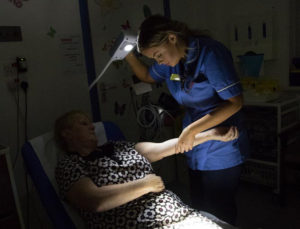Women who work at night, especially during pre-menopause, may be at greater risk of developing breast cancer, a new study has found. The study comes two years after an Oxford University study claiming there was no association was rebutted and dismissed as ‘bad science’ by work and breast cancer experts.
The new analysis of surveys in Australia, Canada, France, Germany and Spain looked at nearly 6,100 women who had been diagnosed with breast cancer and approximately 7,000 who had no diagnosis. Participants answered self-administered questionnaires or telephone interviews about their occupation and about risk factors for breast cancer.
The findings, published in the European Journal of Epidemiology, revealed the rates of certain breast cancers increased with the number of hours worked per night, as well as the number of years spent on the night shift. However, the risk seemed to diminish two years after going off the night shift.
“Women who work at least three hours between midnight and 5am run a 12 per cent greater risk of developing breast cancer than women who have never worked at night,” said study co-author Anne Grundy, a research associate at the University of Montréal’s Department of Social and Preventive Medicine. “Among pre-menopausal women, the risk associated with working at night increases to 26 per cent.”
Night workers who work shifts longer than 10 hours have a 36 per cent increased risk of breast cancer, again compared to women who have never worked nights. The risk is as high as 80 per cent among women who work night shifts in excess of 10 hours for more than three nights per week.
“Women who were still working nights at the time of the study had a breast cancer risk that was 26 per cent higher than those who had stopped working at night at least two years previously,” said Grundy. “We need to go further in our research so that labour policies ultimately take into account this risk for women, and so that companies take preventive action and adjust work schedules.”
- Emilie Cordina-Duverger and others. Night shift work and breast cancer: a pooled analysis of population-based case–control studies with complete work history, European Journal of Epidemiology, volume 33, issue 4, pages 369–379, 2018. doi: 10.1007/s10654-018-0368-x

